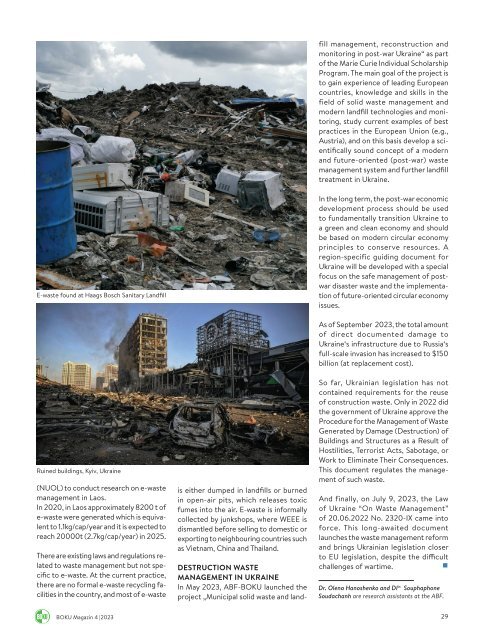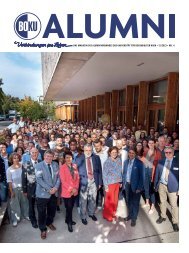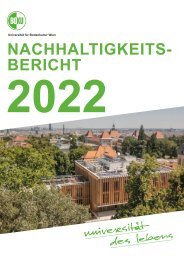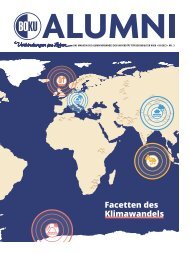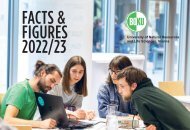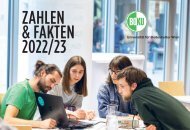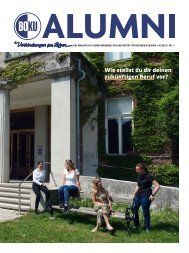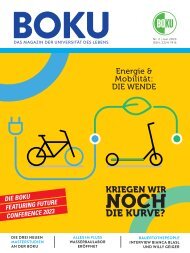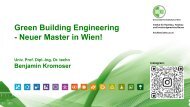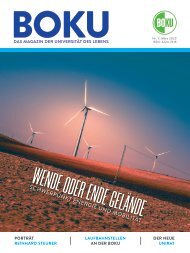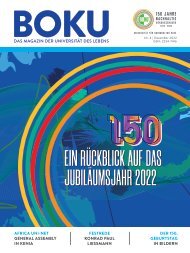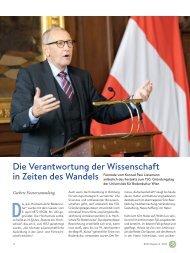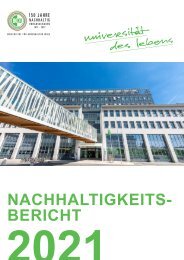BOKU Magazin 4/2023
Inhalt Editorial Marion Huber-Humer im Interview Einwegpfand in Österreich Lebensmittabfälle in den Haushalten Elektroaltgeräte: Wertvoll und gefährlich Dem Mikroplastik auf der Spur Safe and Sustainable by Design „Nanocarrier“ auf dem Prüfstand Schlüsselressource Biogene Abfälle Plastic Pirates ABF goes international Making BOKU the hub for bioeconomy Der BOKU-Nachhaltigkeitsbericht Demokratie in der Klimakrise: Der BOKU-Nachhaltigkeitstag 2023 Im Höhenflug zum BOKU-Ball Helmut Habersack „Österreicher des Jahres“ BOKU-Student im Jungbauernkalender Das neue Hinweisgebersystem an der BOKU Abend des Lehrens und Lernens Interview Ars docendi-Anerkennungspreis Lehrveranstaltung Citizen Science Project4 (Gender & Diversity) Neue Kolumne Citizen Science Splitter Forschung: FAQ / ERC Grants Kreislaufwirtschaft in der BASE:academy Start-up Hut & Stiel Strategische Kooperation BOKU – Umweltbundesamt BOKU-Diversitätspreis für Forschung
Inhalt
Editorial
Marion Huber-Humer im Interview
Einwegpfand in Österreich
Lebensmittabfälle in den Haushalten
Elektroaltgeräte: Wertvoll und gefährlich
Dem Mikroplastik auf der Spur
Safe and Sustainable by Design
„Nanocarrier“ auf dem Prüfstand
Schlüsselressource Biogene Abfälle
Plastic Pirates
ABF goes international
Making BOKU the hub for bioeconomy
Der BOKU-Nachhaltigkeitsbericht
Demokratie in der Klimakrise: Der BOKU-Nachhaltigkeitstag 2023
Im Höhenflug zum BOKU-Ball
Helmut Habersack „Österreicher des Jahres“
BOKU-Student im Jungbauernkalender
Das neue Hinweisgebersystem an der BOKU
Abend des Lehrens und Lernens
Interview Ars docendi-Anerkennungspreis
Lehrveranstaltung Citizen Science Project4
(Gender & Diversity)
Neue Kolumne Citizen Science
Splitter
Forschung: FAQ / ERC Grants
Kreislaufwirtschaft in der BASE:academy
Start-up Hut & Stiel
Strategische Kooperation BOKU – Umweltbundesamt
BOKU-Diversitätspreis für Forschung
Sie wollen auch ein ePaper? Erhöhen Sie die Reichweite Ihrer Titel.
YUMPU macht aus Druck-PDFs automatisch weboptimierte ePaper, die Google liebt.
DESTRUCTION WASTE<br />
MANAGEMENT IN UKRAINE<br />
In May <strong>2023</strong>, ABF-<strong>BOKU</strong> launched the<br />
project „Municipal solid waste and landfill<br />
management, reconstruction and<br />
monitoring in post-war Ukraine“ as part<br />
of the Marie Curie Individual Scholarship<br />
Program. The main goal of the project is<br />
to gain experience of leading European<br />
countries, knowledge and skills in the<br />
field of solid waste management and<br />
modern landfill technologies and monitoring,<br />
study current examples of best<br />
practices in the European Union (e.g.,<br />
Austria), and on this basis develop a scientifically<br />
sound concept of a modern<br />
and future-oriented (post-war) waste<br />
management system and further landfill<br />
treatment in Ukraine.<br />
E-waste found at Haags Bosch Sanitary Landfill<br />
In the long term, the post-war economic<br />
development process should be used<br />
to fundamentally transition Ukraine to<br />
a green and clean economy and should<br />
be based on modern circular economy<br />
principles to conserve resources. A<br />
region-specific guiding document for<br />
Ukraine will be developed with a special<br />
focus on the safe management of postwar<br />
disaster waste and the implementation<br />
of future-oriented circular economy<br />
issues.<br />
Ruined buildings, Kyiv, Ukraine<br />
(NUOL) to conduct research on e-waste<br />
management in Laos.<br />
In 2020, in Laos approximately 8200 t of<br />
e-waste were generated which is equivalent<br />
to 1.1kg/cap/year and it is expected to<br />
reach 20000t (2.7kg/cap/year) in 2025.<br />
There are existing laws and regulations related<br />
to waste management but not specific<br />
to e-waste. At the current practice,<br />
there are no formal e-waste recycling facilities<br />
in the country, and most of e-waste<br />
is either dumped in landfills or burned<br />
in open-air pits, which releases toxic<br />
fumes into the air. E-waste is informally<br />
collected by junkshops, where WEEE is<br />
dismantled before selling to domestic or<br />
exporting to neighbouring countries such<br />
as Vietnam, China and Thailand.<br />
As of September <strong>2023</strong>, the total amount<br />
of direct documented damage to<br />
Ukraine‘s infrastructure due to Russia‘s<br />
full-scale invasion has increased to $150<br />
billion (at replacement cost).<br />
So far, Ukrainian legislation has not<br />
contained requirements for the reuse<br />
of construction waste. Only in 2022 did<br />
the government of Ukraine approve the<br />
Procedure for the Management of Waste<br />
Generated by Damage (Destruction) of<br />
Buildings and Structures as a Result of<br />
Hostilities, Terrorist Acts, Sabotage, or<br />
Work to Eliminate Their Consequences.<br />
This document regulates the management<br />
of such waste.<br />
And finally, on July 9, <strong>2023</strong>, the Law<br />
of Ukraine “On Waste Management”<br />
of 20.06.2022 No. 2320-IX came into<br />
force. This long-awaited document<br />
launches the waste management reform<br />
and brings Ukrainian legislation closer<br />
to EU legislation, despite the difficult<br />
challenges of wartime.<br />
W<br />
Dr. Olena Hanoshenko and DI in Souphaphone<br />
Soudachanh are research assistants at the ABF.<br />
<strong>BOKU</strong> <strong>Magazin</strong> 4 | <strong>2023</strong><br />
29


